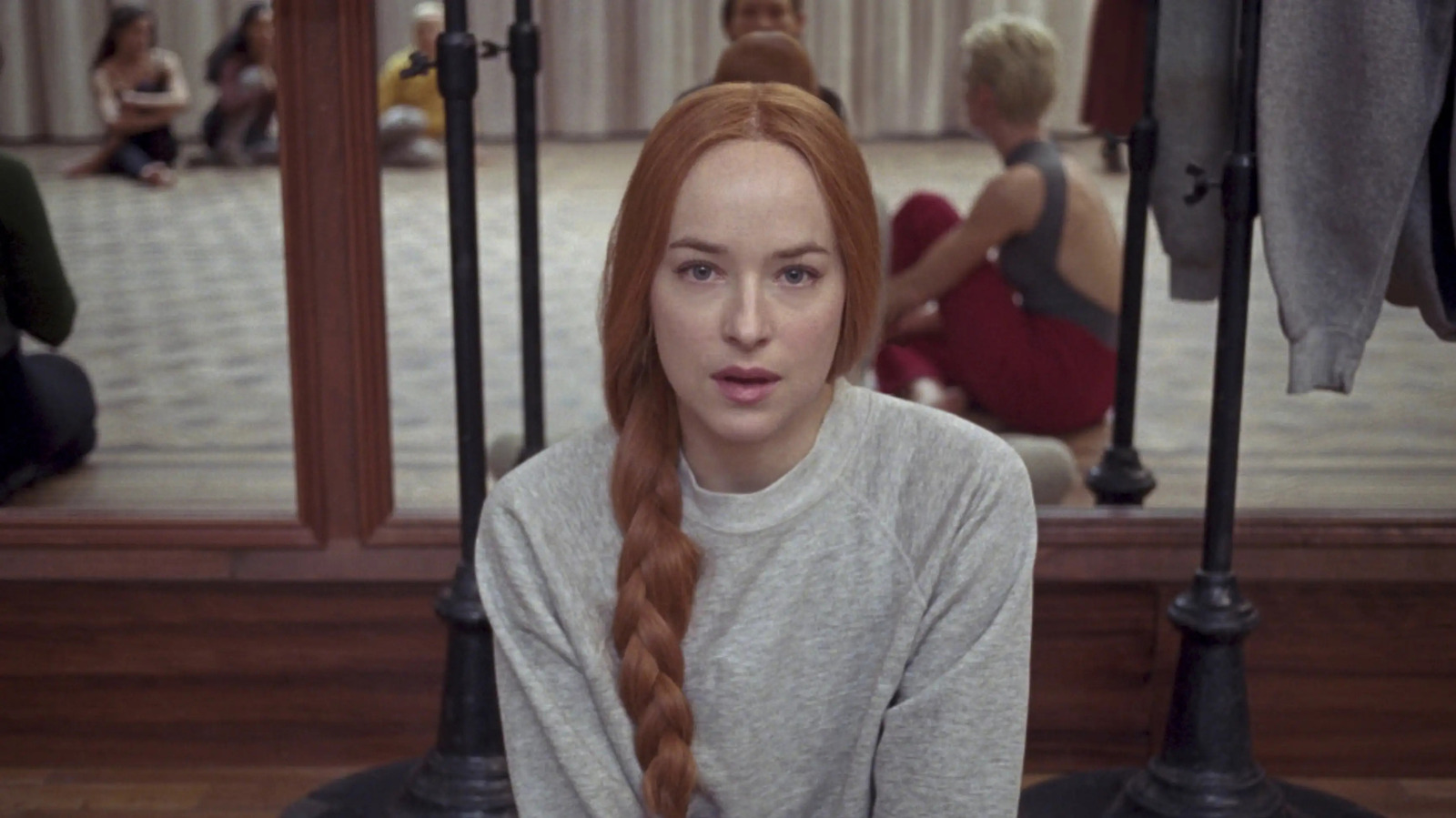
In Argento’s original, the dance school seemed almost like an incidental setting, nothing more than a place to provide Argento with interesting visuals and, uh, leotards. In Guadagnino’s remake, dancing became the central method with which witches were witchy. In the film’s most memorable scene, the Swinton character pinches Susie’s hands and feet, casting some sort of charm on her body. When Susie begins dancing, a woman on the floor below her is terrifyingly and supernaturally puppeted by her movements. The victim’s body, unprepared for the dance, contorts, twists, breaks, and cracks. It’s a painful, horrid way to die, slain by the terpsichorean muse. Suddenly, it makes sense why witches would be running a ballet academy. The dancing is the best way to evoke demonic power. Dancing becomes pagan, menacing, and terrifying.
In a new twist, Guadangino’s “Suspiria” follows a character named Dr. Josef Klemperer (Lutz Ebersdorf, actually Tilda Swinton again), the psychologist of Sara (Mia Goth), a fellow dancer at the Academy. Sara tells Dr. Klemperer that her school is controlled by witches, inspiring him to investigate any malfeasance. Dr. Klemperer uncovers the entire coven’s identity but actually finds something more personally relevant: the fate of his wife, who died in the Holocaust. He, too, is a survivor and is wracked by survivor’s guilt, feeling he didn’t do enough to stem the tide of fascism. This is a symbol of Germany’s constant reckoning with its wartime past, and how it directly links to the unrest of 1977. Not to mention, the current unrest seems to be enabling the re-growth of evil right under the noses of German citizens.
Evil, the new “Suspiria” says, is an active choice, and we can fight it, or be sucked into its grotesquerie. We can gain power, but it’s useless unless we wield it properly. And that’s what the new “Suspiria” is really examining: the uses and misuses of political power. It can be used for good evil, or a mixture of the two, but when misused, it leaves cultural scars.







